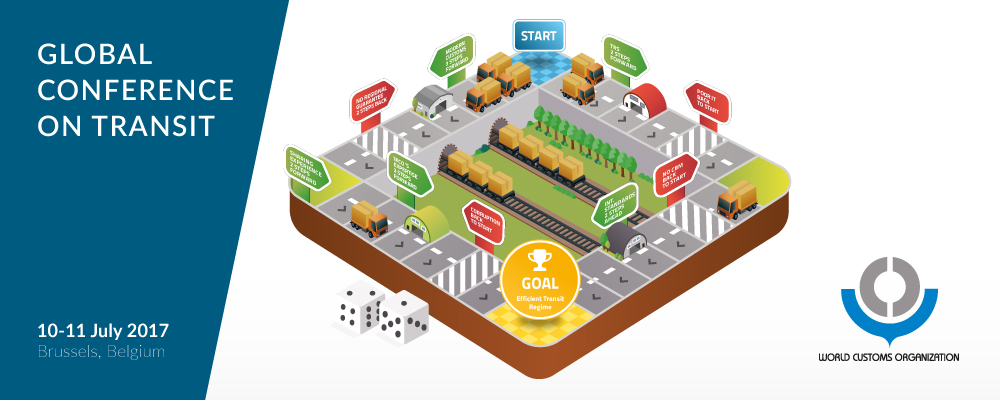Global Transit Conference
10-11 July 2017
Brussels, Belgium
Today’s international trade landscape is characterized by high trade costs related to transportation and administrative requirements, constituting one of the challenges to the accelerated economic growth and development of developing countries. The highest trade costs are still in Africa, accounting for an ad valorem tariff equivalent of over 260, which means that for each dollar it costs to manufacture a product, another US$ 2.60 will be added in the form of trade costs. These trade costs relate to transportation costs, tariff and non-tariff measures, Customs fees and charges, information costs, and the costs of possible delays. Improvement of transit potential and the elimination of unnecessary and adverse burdens from transit operations, will contribute to increased trade volume, better interconnectedness of global markets, and integration of peripheral landlocked economies into global supply chains. Ensuring freedom of transit will undoubtedly contribute to the overall inclusive and sustainable growth of transit and landlocked developing countries (LLDCs).
The freedom of transit is ensured by WTO General Agreement on Tariffs and Trade Article V, WTO Trade Facilitation Agreement Article 11, WCO Revised Kyoto Convention Special Annex E and considered as the first priority of the United Nations Vienna Programme of Actions. Measures such as the establishment of real-time information exchange, use of ICT solutions, coordination between border-control agencies, ensuring easy access to information on transit procedures, facilitation of requirements for Customs guarantees, adjoining regional and international guarantee systems, and the application of risk management need to be implemented by Customs administrations and their respective governments in the context of transit facilitation.
Recognizing the need for an instrument related to transit facilitation and implementation of the international legal framework referred above, the WCO has developed Transit Guidelines that aim to support WCO Members in implementing efficient transit systems.
Transit Guidelines will help Customs administrations and their respective governments to initiate and implement measures for transit facilitation in order to boost their economies and increase trade flows. This tool will be of particular importance for land-locked developing countries and will help them to minimize the adverse effects of the lack of the access to the sea. Transit Guidelines will also be helpful for international organizations and development partners in planning development projects, particularly within the framework of implementation of the WTO Trade Facilitation Agreement and UN Vienna Programme of Actions. The document will also be of interest to the private sector involved into transit trade.
The WCO GLOBAL TRANSIT CONFERENCE will be held on 10-11 July 2017 at WCO Headquarters in Brussels where the new WCO tool, Transit Guidelines, will be presented to Customs administrations, governments, international organizations and the private sector.





